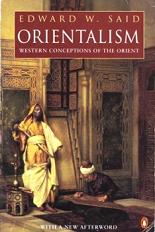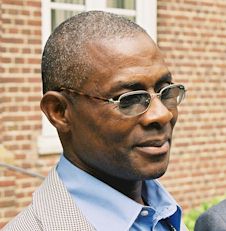
Orientalism
Edward Said
396 pages including index
published in 1978
There are some books that I’m sort of ashamed to review, not because the books themselves are so bad but just because I should’ve read them years ago. Orientalism is one such book. Both it and its author are so often namechecked by leftwing bloggers that I felt a slight twinge of embarassement for only reading it now. Also, I don’t know how it is with you, but I’m often wary to read such widely acclaimed books anyway, as there’s something so “Rik the people’s poet” about reading Said, or Chomsky for that matter. It can look poseurish and nobody wants to come over as that.
Nevertheless, Orientalism is a genuinely important book, even now, thirty years after its first publication. It’s main argument — that Asia in general and the Middle East in particular have long been misrepresented in the west as “the Orient”, an exotic world filled with prejudices and cliches in order to serve imperialist goals in the region — may look a bit obvious now, not as radical as it was at first publication, but this is in great part because Orientalism laid out this argument so convincingly first. In fact it had such an impact, that even thirty years onwards there are still people trying to cut it down to size, as a quick Google search shows. It touched a nerve, perhaps not in the least because Said was an outsider to the academic orientalist tradition he was criticising.
